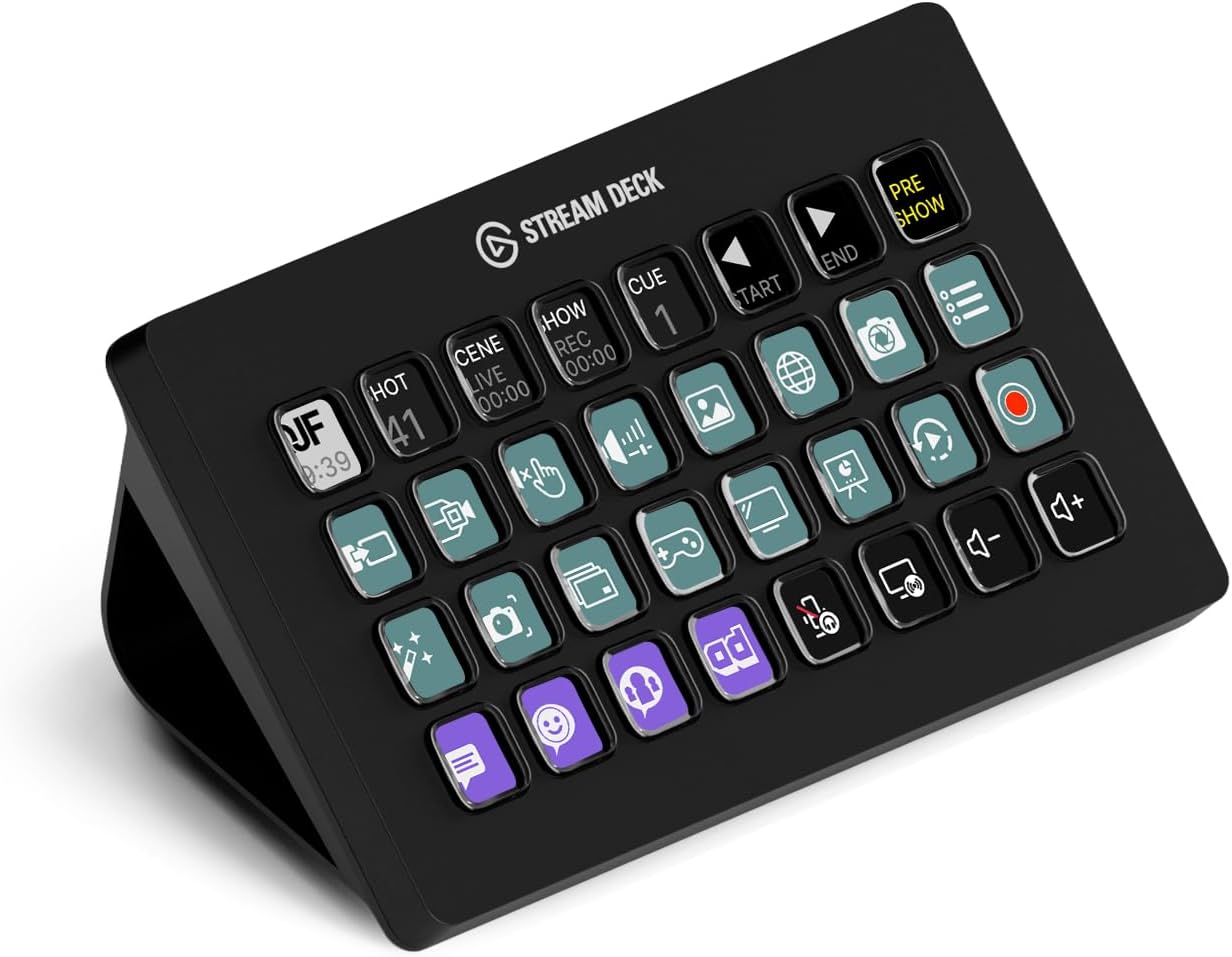Interview with Patrice Rushen Watch Out
 IT'S
been three years since her last album . . . but now she's back! "Watch
Out" is the title of the new album and single and judging by the
response so far, both will be big sellers. Yes indeed, Patrice Rushen
has returned with a vengeance. The album,
incidentally, is all her own work except for three tracks ?
"Somewhere", "Anything Can Happen" and "Long Time Comin'" ? and the
project is a direct cross between dance and ballad.
IT'S
been three years since her last album . . . but now she's back! "Watch
Out" is the title of the new album and single and judging by the
response so far, both will be big sellers. Yes indeed, Patrice Rushen
has returned with a vengeance. The album,
incidentally, is all her own work except for three tracks ?
"Somewhere", "Anything Can Happen" and "Long Time Comin'" ? and the
project is a direct cross between dance and ballad.IT'S been three years since her last album . . . but now she's back! "Watch Out" is the title of the new album and single and judging by the response so far, both will be big sellers. Yes indeed, Patrice Rushen has returned with a vengeance!
The album, incidentally, is all her own work except for three tracks ? "Somewhere", "Anything Can Happen" and "Long Time Comin'" ? and the project is a direct cross between dance and ballad.
"I enjoy singing dance tracks", she said across the Atlantic phone, "but I do like songs I can get my teeth into, like a ballad. People listen to the lyrics more and, although it can be a little scarey because artists put personal ideas into their writing, I believe it's the only way the listener can tell that the artist is sincere.
"Many times when I write the lyrics I have to check myself. There are just some things I can't put into words and besides it takes so much out of me that I usually let someone else write the music."
She paused, then added: "Writing is a very delicate operation and I wish more people were actually more concerned about the delicacy than the commerciality. Artists are pawns on a big chess board, but that is the way of the business, I'm afraid."
She also believes the way artists are treated depends on how much success they enjoy and, she reckoned, a career is based on how much music is sold. "It doesn't matter even if a single is junk, so long as it sells. Yet having a hit gives an artist more chances to do things. There are so many barriers to be broken down anyway and sometimes that's real hard.
"Music is really a spiritual thing ? a connection between your inner self and the projection of that in public. This makes artists a little bit different, I think, because it's a gift that needs to be developed. Sometimes it gets squashed when records don't sell."
PATRICE is newly signed to Arista following a lengthy stay with Elektra. She was urged to change companies by Arista boss Clive Davis, although that wasn't her intention at the time. I'll let the lady explain what happened.
"When I first met with Clive, it was as a producer. I wanted to find out if he was interested in me producing some of his artists. He turned the conversation around and we got talking about me signing to Arista as an artist. He's well respected in the business and Arista might be a small label but it does have a lot of influential artists signed. I only hope that I'll be one of those signings who will be one of the most innovative, with a certain amount of longevity."
Changing record companies is like, for you and me, finding a new job ? a scarey move. Patrice agreed.
"I was with Elektra for seven years and before that with Fantasy for three, so signing this new deal was very frightening. Everybody has their own way of doing things and you have to learn them all over again. Also once the conversations and the promises are made, you have to be sure they're kept after your signature is on the contract. So you just hope things go OK and go for it."
Clive Davis actually saw Patrice perform in 1980 when she was still signed up. "He said it doesn't matter how long it takes, so I guess he was impressed with me!"
Three years later the album is released. Why so long?
"Well, record companies do take time to schedule records and since I am a new signing there were certain things they had to get just right. The actual album took me six to eight months to record and I finished it last year. Then Arista took over and, as I don't control the scheduling and that, I guess I just had to wait for my turn."
The single was released in the States three weeks ago and the album last week. "Things are just gearing up now for promotional work, interviews, that sort of thing. It's all tiring but well worth it. I'm also hoping to visit Europe on a short tour to help out with the promotion work in the very near future."
APART from concentrating on her debut Arista set, Ms Rushen has been involved in session work for other people. "Do you know Vesta Williams' 'Once Bitten Twice Shy'? Well, I played synthesisers on that and I've underscored the motion picture 'Hollywood Shuffle' ? so I've not been idle."
She met Vesta a few years ago when they did sessions together. "We kept running into each other and then I was called in to work on her single Oh, we had a good time in the studio, I can tell you." That I can well believe for Vesta is something else, but Patrice wa quick to point out, Vesta didn't get all her own way as she's quick tongued also.
Hit singles are an important part of most artist's careers but Ms Rushen said in her case they're not as important now a: they used to be. "I'm involved in so many aspects of music that I don't worry too much about hits. I worry about givinc my best, and accurately projecting myself. As I mature I step back and let the music happen. I suppose it's very gratifying to have a hit, but more gratifying when that hit is based upon true feelings and personal satisfaction.
"It would be a nightmare for me to have a hit with a single I hated and then have to sing thi darned thing for the rest of my life. I believe records say a lot about an artist and I wouldn't be associated with something 1 wasn't at ease with. I won't settle for less than I am capable of doing."
THE talented Patrice was born in Los Angeles. When she was a mere three years she enrolled in a special music preparation programme run at U.S.C. Three years later, as a prolific pianist she gave classical recitals. She studied via the programme until she was a teenager when a music teacher urged her to enter a competition at the 1972 Monterey Jazz Festival. She walked away with first prize then signed a deal with the jaz label, Prestige.
"I wanted to be a studio musician and jazz is definitely among the forms that studio musicians must understand. It requires the knowledge of extended harmonies, melodies and improvisation, all of which come into play in the studio."
Three albums later ? "Traverse", "Before The Dawn", "Shout It Out" ? it became apparent Ms Rushen wasn't destined to be typecast as a jazz player. She expanded in other areas and headed up session work for the likes of Peabo Bryson, Prince and the late Minnie Riperton.
Patrice's reputation grew and she became known as the only woman to emerge from jazz and R&B as a self-contained recording artist, composing and producing her own work. She joined Elektra in 1978.
"My main focus with my first album there was to get out of the jazz mould and I think I did that. In putting the songs together, I discovered I had a lot of vocals and no-one to sing them. People started coaxing me to sing them myself, so I figured what the heck and took the plunge!"
All in all Patrice recorded five albums for Elektra, some of which brought in Grammy nominations. She also enjoyed cross-over singles with "Haven't You Heard" and "Forget Me Nots". Her most commercially successful album was probably "Straight From The Heart" and from the proceeds she built a twenty-four track studio in her home, which has obvious advantages, as she explained.
"I can work as long as I want to, when I like . . . even in the middle of the night if I want. And I can take more time to record without worrying about a time limit and the money it's costing. I'm much more relaxed and find it a better working situation for me. I don't fool around either, otherwise I'd get nothing done and not meet my deadlines!"
There was one huge disadvantage to working at home ? "there's nobody to make the coffee, so I have to do it myself."
IF Patrice had not ventured into this business she would have been involved in some form of art, like dancing. But, she admitted, "I'm not a great dancer by any means, but I really do love to do it. I like movement, and after all movement is one of the inspirations for writing music. "Maybe I've been a dancer in my past life or something. Yes, I'm serious. So many of the things that I do have come easily to me, even some things that are difficult to do, like getting into this business in the first place."
As a subject like this takes lengthy serious discussions, we decided to leave it for another time. So, I think it's true to say Patrice Rushen has chosen her career wisely and as much as she loves the business there are a few things that irritate her ? "but I try not to dwell on them too much, and to concentrate on things I do like. The politics and red tape drive me crazy, even down to the politics in getting records played on the radio and ascertaining chart positions. "So, as I want to remain sane, I stick to what I'm best at ? and that's music!" (B&S SD)





